
[ad_1]
Sub-plots spilled from Ireland’s loss to New Zealand in an epic World Cup quarter-final in 2023.
In one of the great games of the professional era, the All Blacks’ victory was accompanied by personal tussles that only deepened the drama.
There was Ronan Kelleher being held up on the line by Jordie Barrett in the game’s last moments. The pair would be team-mates within 15 months but on that night, the mighty New Zealand centre denied Kelleher, thereby keeping Ireland out of the last four.
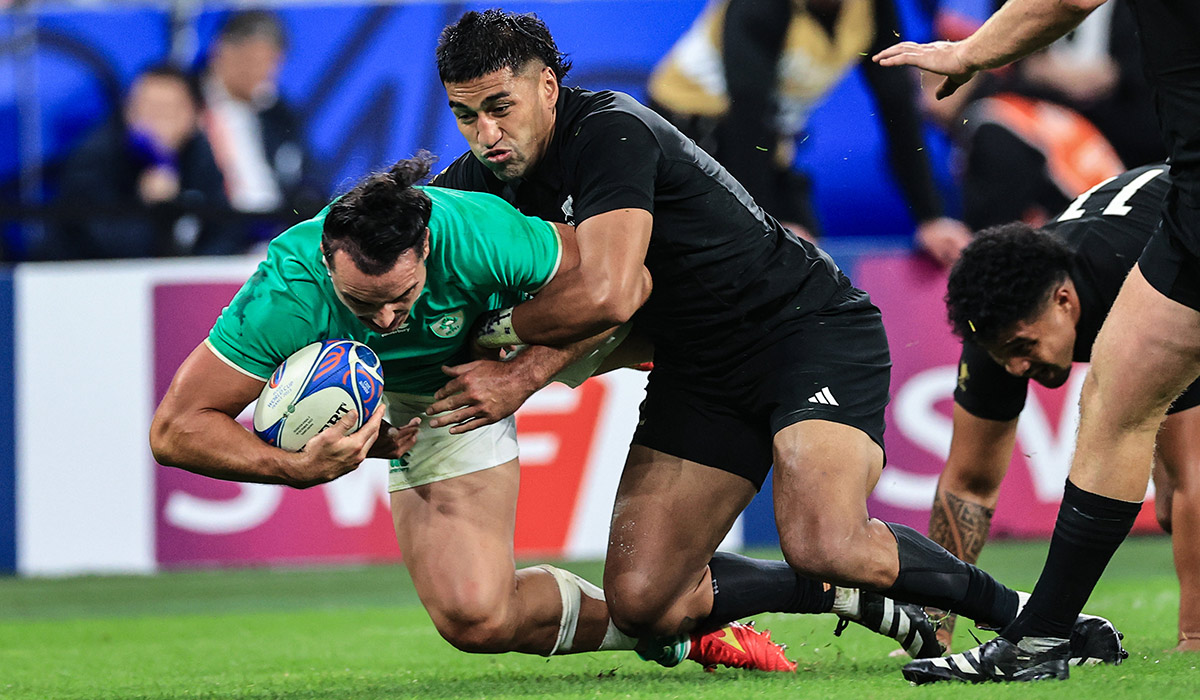 Sub-plots spilled from Ireland’s loss to New Zealand in an epic World Cup quarter-final in 2023. Pic: INPHO/Billy Stickland
Sub-plots spilled from Ireland’s loss to New Zealand in an epic World Cup quarter-final in 2023. Pic: INPHO/Billy Stickland
There was Johnny Sexton’s diminishing influence as the game wore on, and his desperate efforts to rage against the fading light.
And then there was Andrew Porter against Wayne Barnes.
Andrew Porter
The Ireland loosehead was as effective as usual in a dynamic display in the loose, but it was his difficulty in the scrum, as interpreted by Barnes, that was a cause of frustration to the player – and a reminder that this part of his game was a recurring weakness.
Porter was penalised twice for infringements at the set-piece, and his evident unhappiness at the time was made clear in later interviews.
‘My blood was honestly boiling after a while because I felt like I’d been hard done by,’ he recalled.
But this wasn’t an issue confined to one match, or one official.
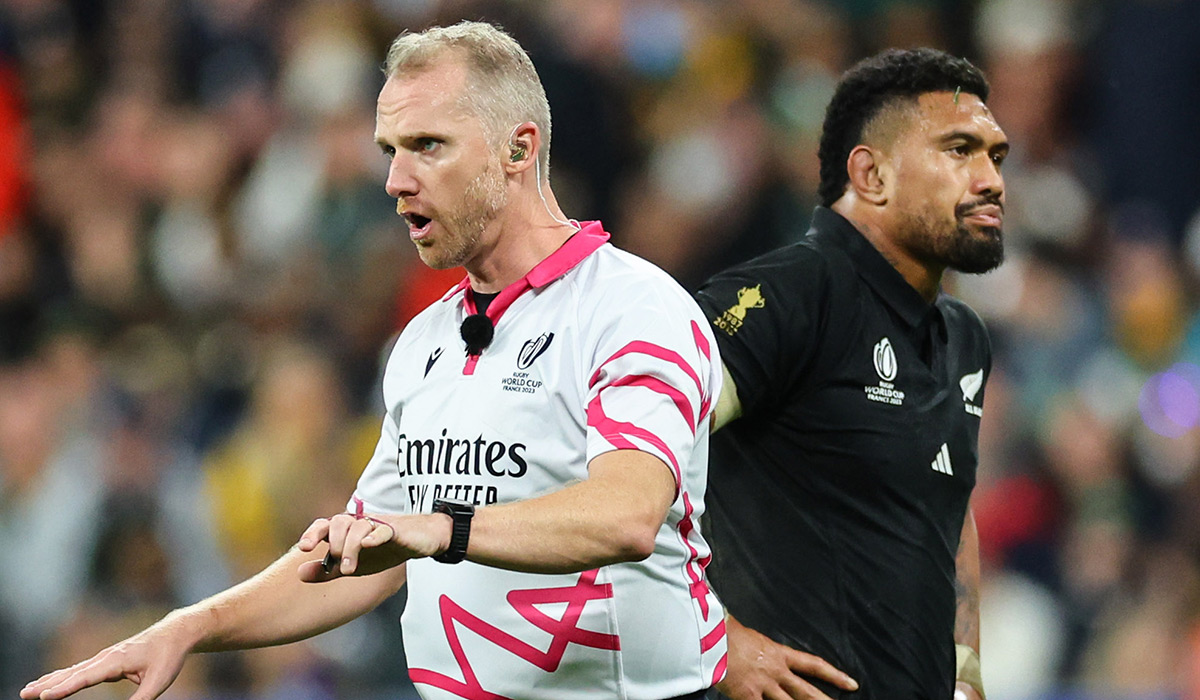 Andrew Porter against Wayne Barnes was a battle in the World Cup quarter-final. Pic: INPHO/James Crombie
Andrew Porter against Wayne Barnes was a battle in the World Cup quarter-final. Pic: INPHO/James Crombie
Porter’s scrummaging technique was repeatedly falling foul of referees, and by one estimation he was the most penalised Irish player of 2024.
Painting good pictures for referees is a piece of rugby wisdom that gets repeated before every fixture, and by this measure Porter was struggling.
The compensation was that he was such a sensationally good rugby player in the loose: a wonderful athlete, excellent ball-carrier, fine tackler, good at the breakdown and possessed of a refined set of skills.
So far in 2025, that exclusive package of front-row attributes comes with near-flawless scrum technique.
A brilliant player has got even better. Ireland have lost one scrum across their first two championship fixtures, and that came with Porter enjoying a belated break last Sunday.
Cian Healy came on and looked, frankly, every day of his 37 years, side-stepped by Scottish loosehead Pierre Schoeman at one point and, more worryingly, buckled in a scrum. Porter has been unbeatable in the set-piece but Healy’s travails, with the match already won in Murrayfield, were a reminder of just how important the 29-year-old Porter is.
 Andrew Porter showed his importance against Scotland. Pic: Piaras Ó Mídheach/Sportsfile
Andrew Porter showed his importance against Scotland. Pic: Piaras Ó Mídheach/Sportsfile
It’s over four years since he made the switch from tighthead to loosehead; doing so with such comfort in his mid-20s was another illustration of his innate talent.
For years, Tadhg Furlong was hailed as Ireland’s irreplaceable prop, but Porter takes that title now.
Finlay Bealham has deputised well for Furlong so far in the championship, but there is nothing approaching a like-for-like alternative were Porter to get injured.
That’s why some involvement for Jack Boyle in Cardiff on Saturday week is important. He is uncapped and behind Porter and Healy at Leinster, but he is a highly regarded talent and the vulnerability shown by the latter against the Scots is a reminder of his great service, but also of the toll that takes.
The saving grace for Simon Easterby, as it has been for Andy Farrell, is Porter’s seeming indestructibility. He is never injured and so fit that he can play deep into most contests.
Props are usually replaced with 30 minutes to play, if not earlier; teams like South Africa, France and England regularly replace whole front rows shortly into the second half of matches, a move that is as much about flexing their might as it is replenishing their pack.
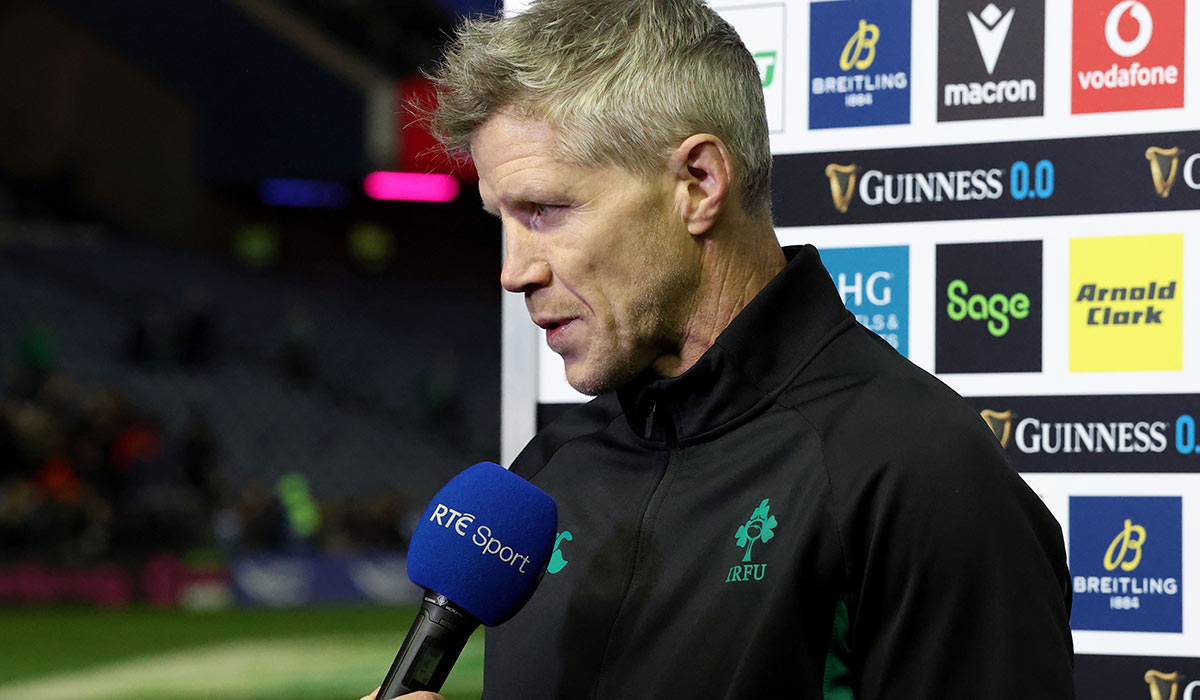 The saving grace for Simon Easterby, as it has been for Andy Farrell, is Andrew Porter’s seeming indestructibility. Pic: INPHO/Billy Stickland
The saving grace for Simon Easterby, as it has been for Andy Farrell, is Andrew Porter’s seeming indestructibility. Pic: INPHO/Billy Stickland
Porter, meanwhile, played 69 minutes last Sunday before Healy came on. The week before, he played 73 minutes against England.
In eight Tests so far this season, starting with the tour to South Africa last July, the earliest he has been replaced is in the 48th minute, and that in the low-wattage November fixture against Fiji.
The previous season, he was replaced before the 50th minute in three Tests of the 11 he started, and they were all in the World Cup, in the routs of Romania, Tonga and the Scots.
When it’s a big Test, Porter will play most of the match. Being able to rely on him for so much of a game is invaluable .
Leo Cullen’s clever deployment of Porter against Munster in the festive inter-provincial did introduce an alternative way of using a priceless asset.
That night in Thomond Park, in what Cullen coyly described afterwards as ‘a pre-planned experiment’, Boyle started the game and was enjoying a dominant first quarter.
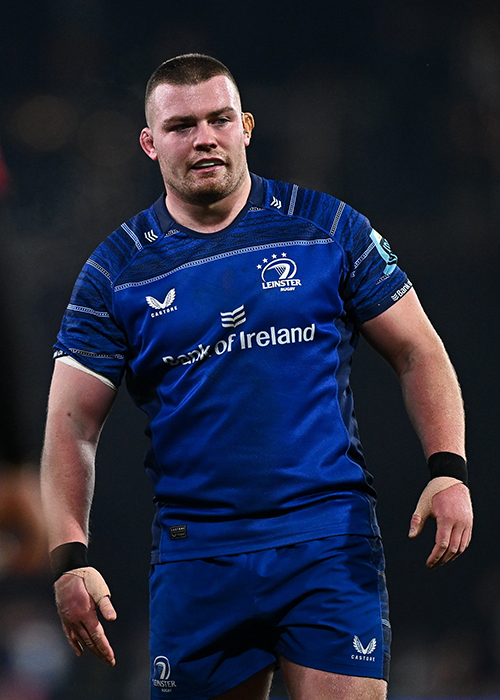 Jack Boyle of Leinster during the United Rugby Championship match between Munster and Leinster at Thomond Park in Limerick. Pic: Seb Daly/Sportsfile
Jack Boyle of Leinster during the United Rugby Championship match between Munster and Leinster at Thomond Park in Limerick. Pic: Seb Daly/Sportsfile
Then, after 22 minutes, he was taken off and Porter played the remainder of the fixture.
It meant Boyle got the experience of starting a big game, Porter wasn’t flogged, but he was still there for the decisive parts of the contest.
Whether Easterby would repeat that tactic in a Six Nations fixture is another matter, but it must be a viable option ahead of the match against the struggling Welsh.
Whatever way he is used, Porter will play most of the game, and Ireland will benefit accordingly.
There is no serious discussion about who will start for the Lions in the No1 shirt this summer.
Ellis Genge has a lot of support from the British media but Porter completely eclipsed the shaping of Genge against England, and there haven’t been many props as good as him to emerge in the northern hemisphere in recent decades.
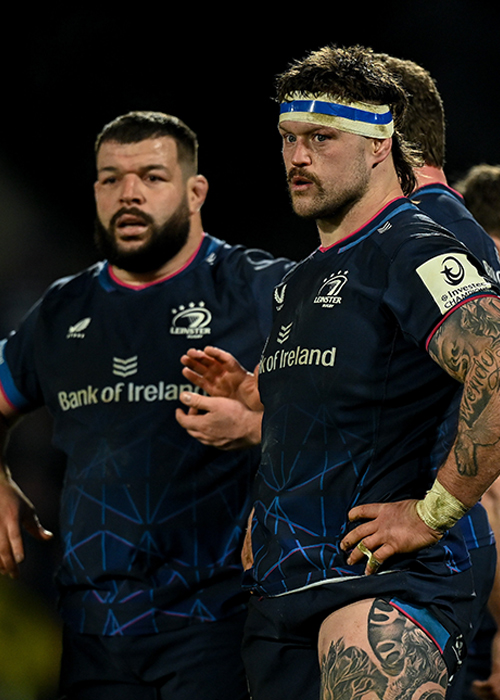 Andrew Porter of Leinster during the Investec Champions Cup Pool 2 match between Stade Rochelais and Leinster at Stade Marcel Deflandre in La Rochelle, France. Pic: Brendan Moran/Sportsfile
Andrew Porter of Leinster during the Investec Champions Cup Pool 2 match between Stade Rochelais and Leinster at Stade Marcel Deflandre in La Rochelle, France. Pic: Brendan Moran/Sportsfile
There can’t be many Irish frontrow forwards who are better.
He talked before the Six Nations about managing the mental turmoil that can come with penalty concessions.
‘It’s trying to have that mental calmness when things are going for you and against you, that’s a big thing we’re taught here and that is encouraged in Ireland camp because you’re not always going to get every decision.
‘You’re not always going to get the bounce of the ball. A lot of it is managing your reaction to things, so I’m trying to be more stoic in that way.’
Stoicism hasn’t been required so far this spring.
If it stays that way, then Ireland’s championship hopes will be in robust shape.
[ad_2]
Copyright for syndicated content belongs to the linked Source link

